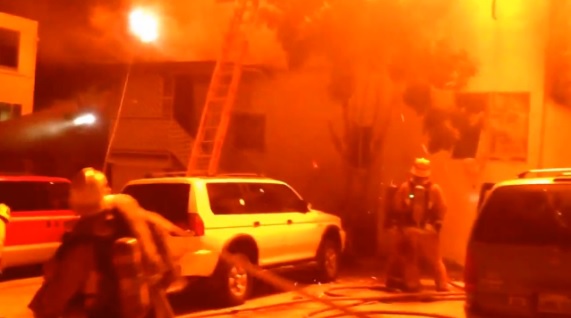DC’s Metro shamefully blames firefighters for its own negligence in killing subway rider

Previous coverage of the January 12, 2015 Metro incident
In February 2015, about a month after Carol Glover died in a smoke filled Metro train in Washington, DC, I told you exactly who was to blame for the 61-year-old woman’s death. It was the people who had, for decades, mismanaged two extremely important agencies in the Nation’s Capital: The Washington Metropolitan Area Transit Authority (WMATA) and the DC Office of Unified Communications (OUC or 911 Center).
To be more a bit more specific, negligence and lost time killed Carol Glover. Negligence by WMATA for not having procedures in place at its Rail Operations Control Center (ROCC) to prevent the train Glover was riding in from being sent towards a potentially hazardous situation. It’s something Metro had done on other occasions with somewhat similar results.

When will someone finally address what really killed Carol Glover?
The wasted time came from both Metro and 911. The delay forced Glover and hundreds of other passengers to sit in the choking smoke much longer than they should have. This can be traced to poor training and procedures at both agencies that have caused delayed responses to numerous other emergencies. (Here’s a 2008 about Metro’s history of delaying calls for help and here is some history on DC’s 911 problems.)
It took another 15-months before what I wrote was officially verified in the report by the National Transportation Safety Board (NTSB). The NTSB timeline (page 99) clearly shows the negligence.
The people working at ROCC waited almost 18 minutes before notifying OUC that fire and EMS were needed at the L’Enfant Plaza station. During that time, smoke alarms sounded, circuit breakers tripped, a number of reports of smoke in the tunnel were received, exhaust fans were improperly activated and two trains full of passengers, including the one with Carol Glover aboard, were sent into harm’s way.
OUC, which received a call from the public four minutes before ROCC got around to calling for help, wasted a total of eight minutes in its effort to dispatch firefighters to the subway tunnel fire.
The first firefighters arrived at L’Enfant Plaza 26-minutes after the first smoke alarm activated.
Despite ignoring alarms and smoke reports and sending Carol Glover’s train directly into the smoke filled tunnel that killed her, WMATA is now telling a judge that Glover died and scores of others were injured because of DC’s firefighters.
According to WTOP Radio’s Max Smith, in an effort to get all of the L’Enfant Plaza incident lawsuits against Metro dismissed, WMATA’s lawyers filed a cross-claim yesterday (Monday) against its co-defendant, the District of Columbia. That document makes the case that the DC Fire and EMS Department, “ignored the obligations that it agreed to undertake in responding to emergencies in WMATA’s underground Metrorail subway system and ignored the efforts of WMATA officials to communicate critical information.”
WMATA’s lawyers also wrote, “As a result of D.C. (Fire’s) utter disregard for its duties in responding to such emergencies, Metrorail passengers experienced injuries that were more severe than they otherwise would have been and the event ended in tragedy,”
In any large scale emergency like this it’s likely that fire and EMS will make some mistakes. And there is little doubt that DC Fire and EMS had some issues, including training, that have been documented in the NTSB report. But it’s absolutely shameful that Metro — which ignored all the warning signs, failed to call for help in a timely manner, and sent hundreds of people into danger and one to her death — is pointing fingers at any other agency.
The only truly honest part of this court document is something Metro has made extremely clear during numerous other rail incidents I’ve covered since the 1970s. It’s what every passenger should now think about before they step onto a Metro train — your safety is not Metro’s responsibility. Here’s what Max Smith wrote:
As part of its cross-claim against D.C., Metro “expressly denies” that it “owes a duty to WMATA’s passengers to assist, rescue and/or evacuate passengers on Metrorail trains in the event of a fire-emergency situation.”
With that, WMATA finally admits what its dismal safety record has long shown — Metro should not be in the business of transporting passengers.





